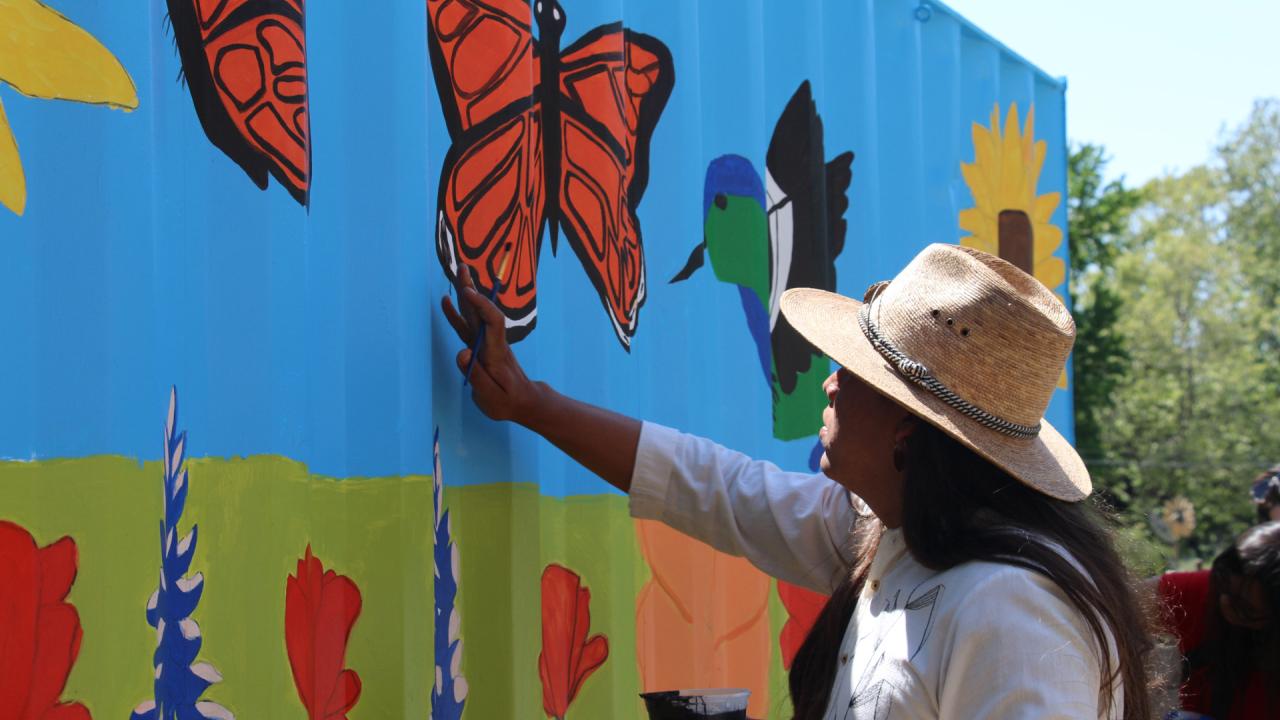
Climate Mural Expands Awareness in South Sacramento Community Garden
Quick Summary
- Earth Scholar Heather Lieb works on creating community through climate murals at Sacramento's Southside Park Community Garden.
A trip across the causeway into Sacramento on a sunny Saturday in May led us to the Southside Park Community Garden where Institute of the Environment Earth Scholar, Heather Lieb, was working with a group of volunteers to paint the latest California Climate Art Trail mural. The Climate Art Trail is part of the UC Davis Institute of the Environment’s Inspiring Environmental and Climate Activism Through Art Initiative.
Heather's been working with the group since starting school at the University of California, Davis. She is not only an Earth Scholar at the UC Davis Institute of the Environment but also a PhD student working in the Department of Land, Air, and Water Resources with Professor Ian Faloona. As an Earth Scholar, Heather was awarded $5000 to work with community organizations across California to conceive Climate murals from concept to completion.
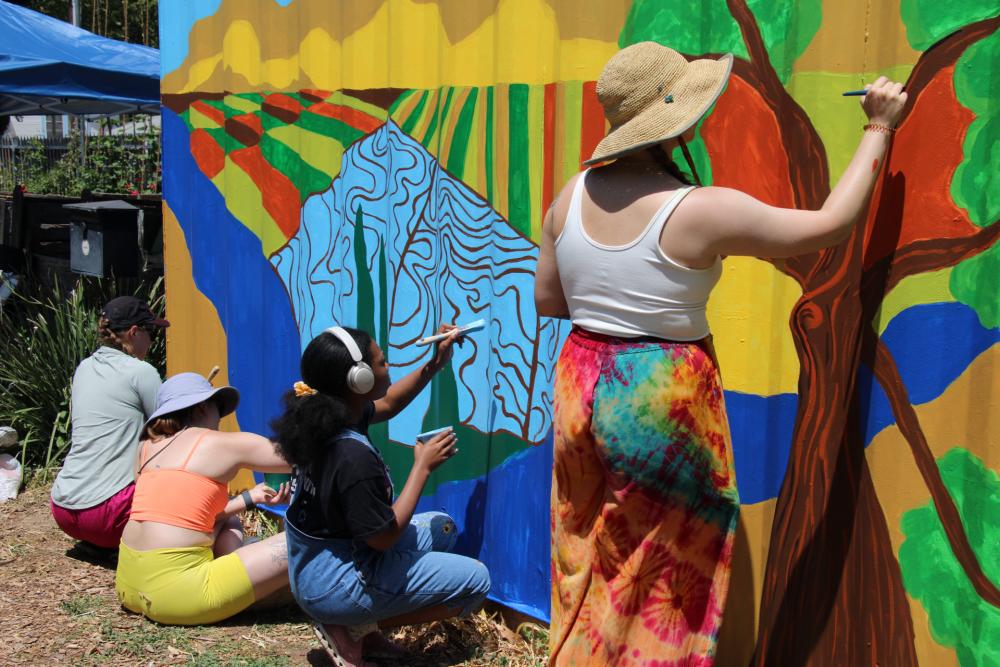
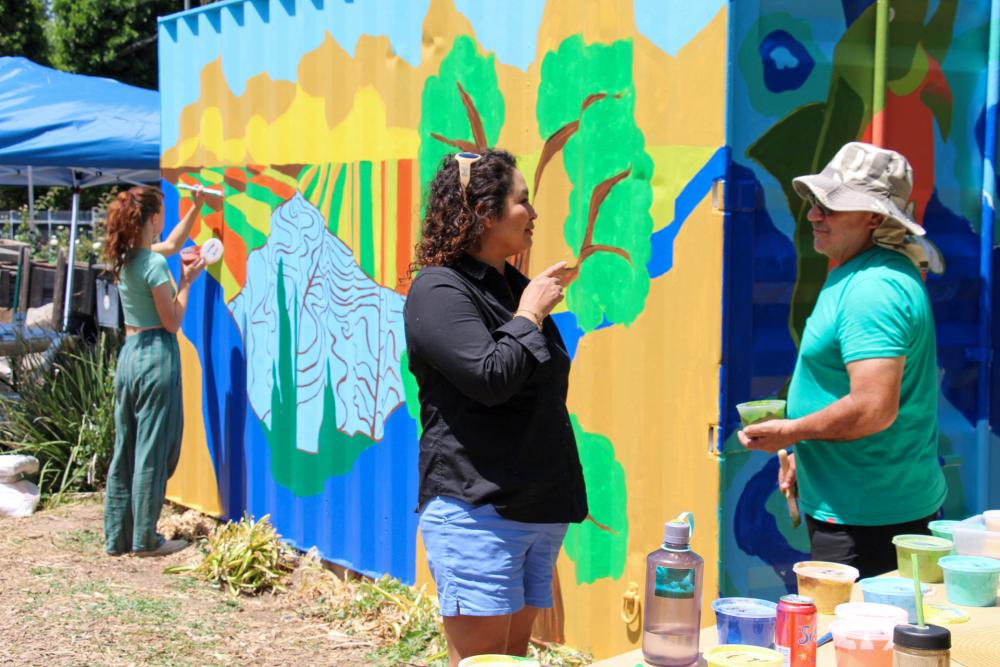
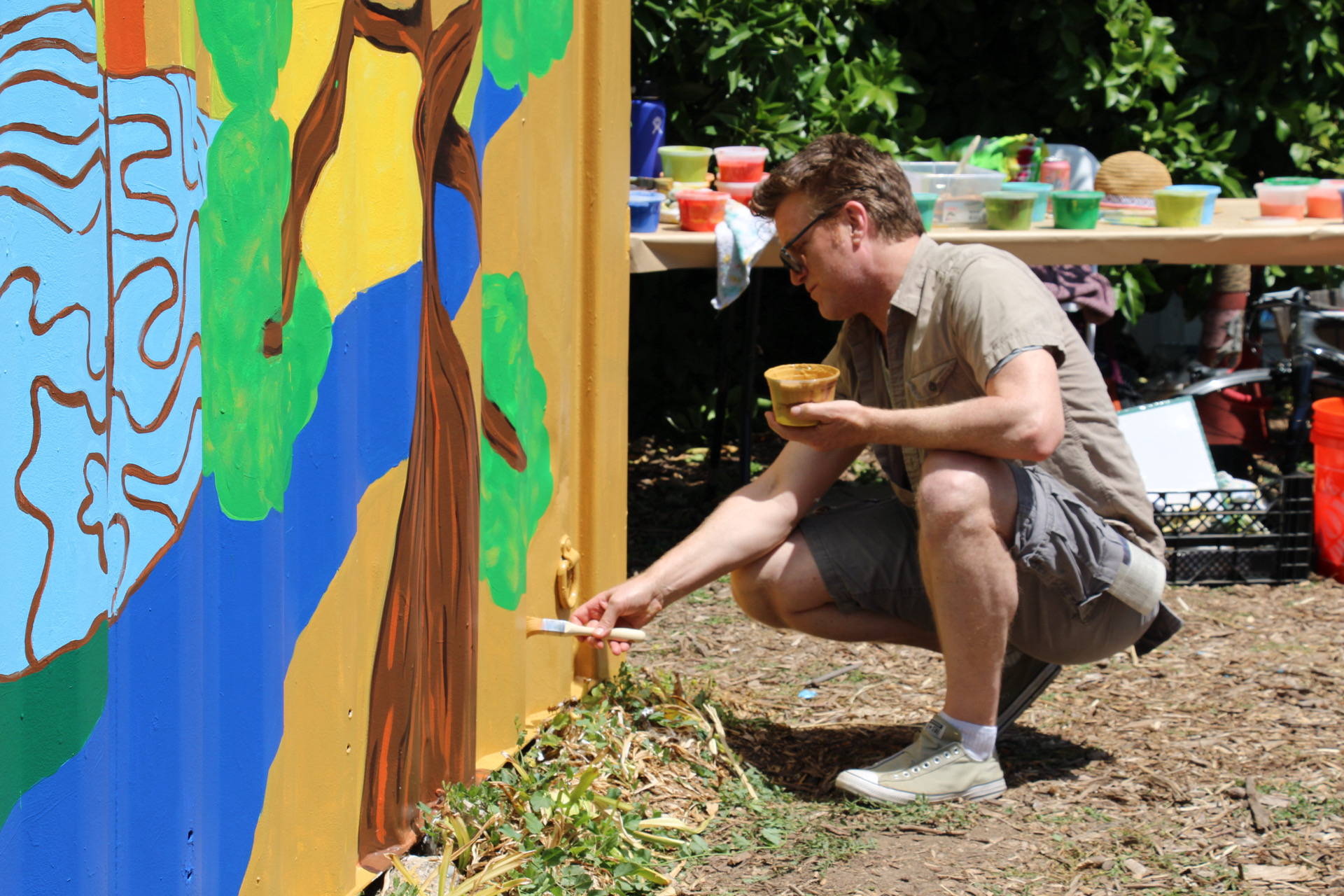
First and foremost, Heather is a climate scientist interested in the influences on the Sacramento region’s air quality. Outside of this work, Heather is an activist who works directly with organizations focused on community organization around improving the environment. In her spare time, Heather is an artist whose work focuses on environmental themes, using her creative and metaphoric strengths to design images that tell the story of local communities. Heather believes, “Community engagement allows for a better understanding of the community’s concerns and provides a safe space for dialogue. These conversations will help me mesh my varied positionalities into one identity, creating scientific discovery informed by public need rather than personal or corporate interests.”
"Climate change will be this generation's biggest challenge and inspiring youth through activism and art will create momentum as they move into the workforce.” says PhD student Heather Lieb, “We are in the midst of a climate revolution, one where we are fighting to combat the changes associated with anthropogenic modifications to the land and their impact on the environment and low-income agricultural communities. The best way to win this revolution is through consciousness and unity."
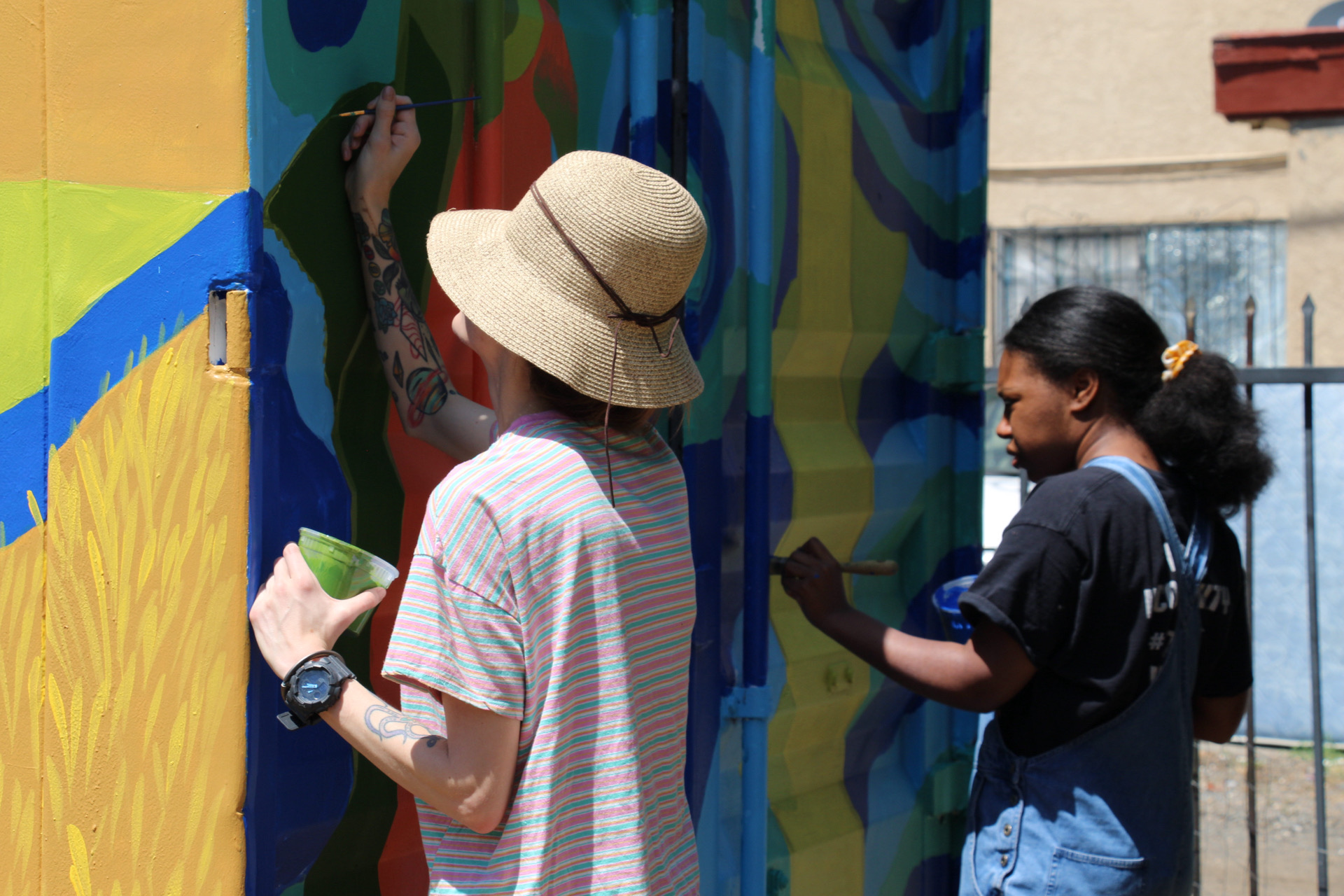
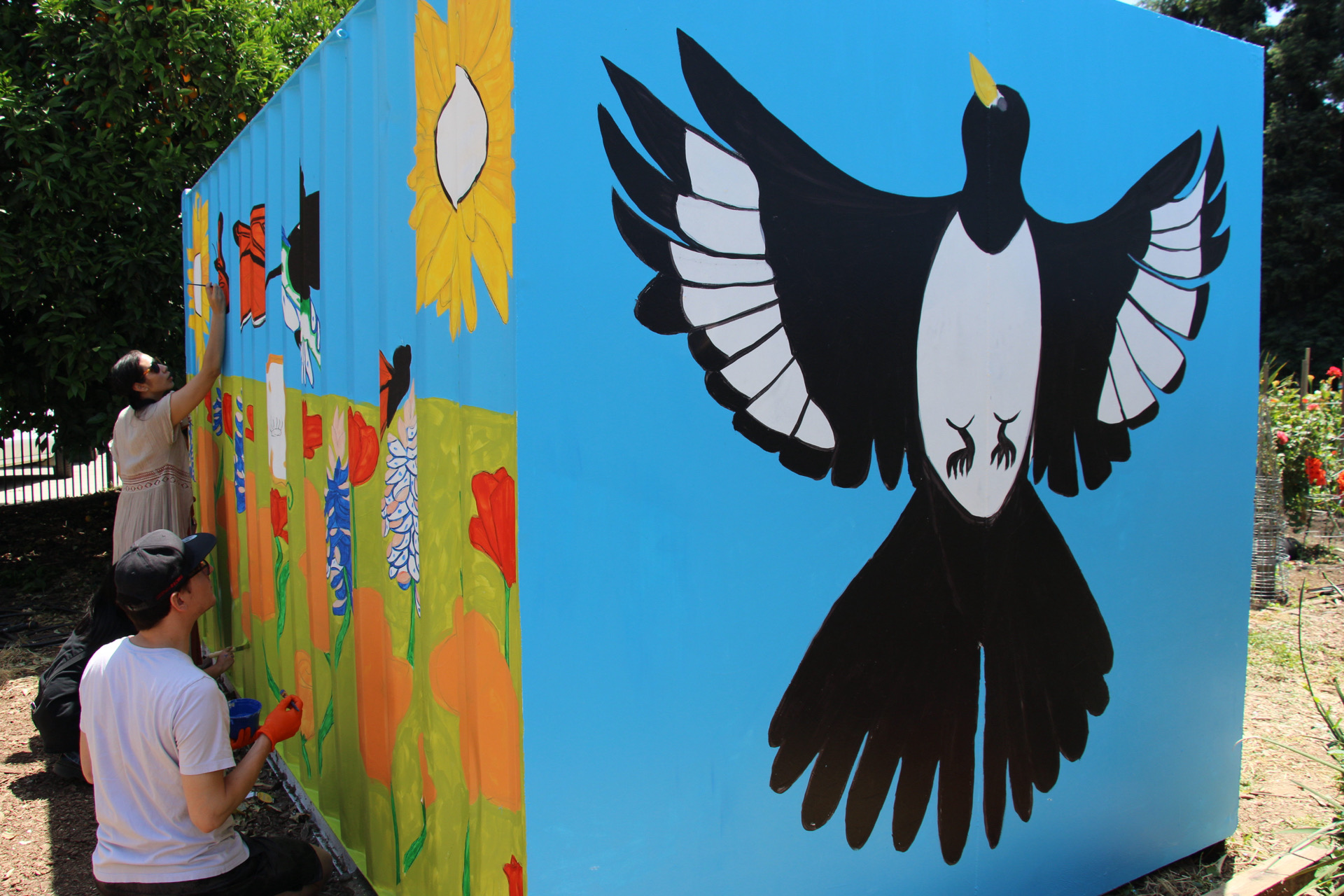
We sat down with Heather Lieb to ask her a few questions regarding her interests in environmentally focused, and community-conscious public art.
What drew you to environmentally conscious research?
"I believe that restoring our relationship with the natural environment is a crucial first step towards environmental conservation. If we foster a deep connection with the world around us, we will be more conscientious about our actions to minimize harm. Building communities that share a similar value around environmentalism can strengthen our impact at a smaller scale. The larger scale impact will be seen as more communities make the effort themselves."
Why is community-driven work important to you?
"In addition to fostering a deep connection with the natural world, building a sense of community with people is equally as important to create meaningful change. By understanding the impact our current systems in place on all people, including underserved communities, we can make decisions that will benefit the collective so that all members are able to thrive. This is why the Sustainable Development Goals were incorporated into this project."
What advice would you give to others wanting to incorporate the creative arts into their research practice?
"Find mentorship that is supportive of your creative endeavors. These projects are not something you can do completely alone and require a lot of external support, especially when you don't have much experience. Most importantly, trust your leadership skills and be resilient when things aren't going smoothly, and trajectories change. The end result may not turn out exactly how you envisioned it but stay true to your values and you will learn a lot."
Heather’s insight highlights the importance of donor support for both supporting those leading community efforts as part of the Inspiring Environmental and Climate Activism Through Art initiative and for making community-university partnerships possible.
To learn more about supporting initiatives at the Institute of the Environment, please contact:
Elena Peters
Strategic Communications Administrator, Institute of the Environment
ecpeters@ucdavis.edu or (530) 754-0909
Trent Sunahara
Assistant Director of Development, Office of Research
tsunahara@ucdavis.edu or (530) 400-9181